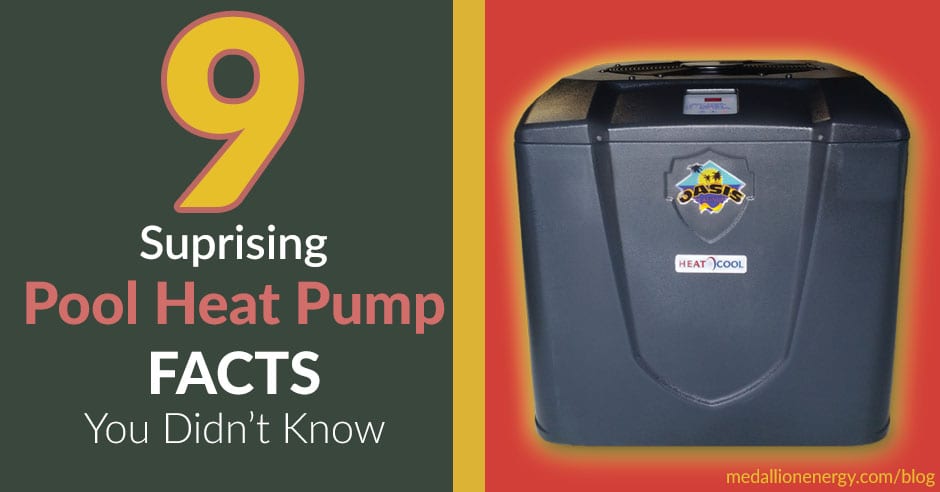You probably know how pool heaters work, but the pool heat pump facts in this post may surprise you
Keep reading to learn more
At this point, most pool owners know that pool heat pumps are a great pool heating option. Of all the different types of pool heaters on the market, pool heat pumps are one of the most reliable and adaptive selections available. They can heat your pool throughout most of the year, without breaking the bank.
But that’s common knowledge, which is why these next few pool heat pump facts may interest you.
In fact, they might even change your views on pool heat pumps entirely. Keep reading to find out.
Pool heat pumps can heat your pool at temperatures of 30 degrees
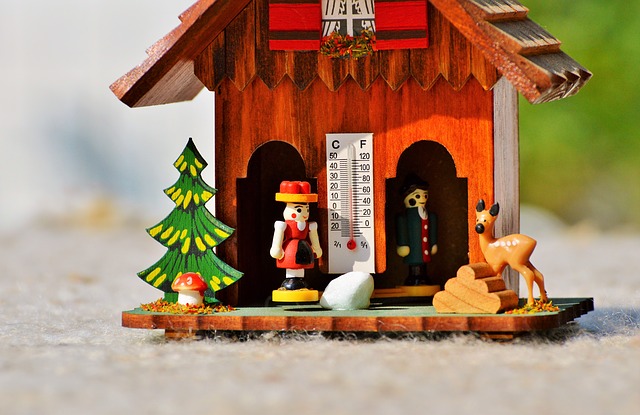
Most people use their pool heaters when it’s not quite warm enough outside to naturally heat up the pool to a comfortable temperature. Usually in the range of 70 to 85 degrees.
Outdoor temperatures in that range won’t make the water swimmable. But turning on the pool heater changes that.
That said, what happens when you crave a refreshing dip in the colder temperatures? Like below 60 degrees cold?
At that point, solar heaters aren’t all that effective, while gas and electric resistance heaters become costly.
But pool heat pumps like the Oasis Platinum offer an alternative option. With certified low-temperature performance, the heat pump operates at external temperatures all the way down to the 30s. Which means that you can still enjoy your pool when cold weather rolls around.
(Of course, always be safe and know when it’s best to close your pool)
They produce over six times as much energy (heat) as they consume
Nearly everyone knows that pool heat pumps are energy efficient, but not everyone knows how much. Of all the pool heat pump facts in this post, this one may surprise you the most.
To put things in perspective, consider this:
While a gas pool heater produces less than 1 unit of heat energy per unit of power/fuel consumed, a heat pump produces over 6. With that in mind, it’s easy to see how you can spend much less with a pool heat pump and get just as much heating out of it.
In fact, there’s a specific number that measures a heat pump’s energy efficiency, and it’s called a coefficient of performance (or COP). A COP is a number that measures how much energy a machine produces per unit of energy it consumes.
Earlier we mentioned that pool heat pumps produce over six times as much energy as they consume. Hence why heat pumps like the Oasis Platinum have a rated COP of 6.5.
Bottom line, the higher the COP the better the energy efficiency, and the happier your wallet.
They’re the most affordable on-demand pool heating option

Since pool heat pumps offer highly efficient heating, you pay less per month to heat your pool. How much less?
If heating a 10,000-gallon pool cost you $300 a month with a gas heater, a pool heat pump would be able to do it at less than $100. Essentially, they’re less than a 1/3 of the cost of pricier options like gas and electric resistance.
And although other environmentally friendly options like solar heating may sound cheaper on the surface, it’s important to consider two factors: the need to keep your pool pump running constantly and that a lack of sun means a lack of heat (also they’re not very effective in the cold).
Heat pumps have the longest lifespans of all pool heaters
If you plan on investing in a pool heater, then you probably want it to last you as long as possible. No one wants to replace an essential piece of pool equipment just years after having it installed.
Luckily, pool heat pumps are one of the most resilient pool heating options available. Most units have a lifespan of 10-20 years, but that’s without any maintenance. Regular maintenance makes all the difference and is the key to extending your pool heat pump’s lifespan (but more on that later).
They can be controlled by automatic timers
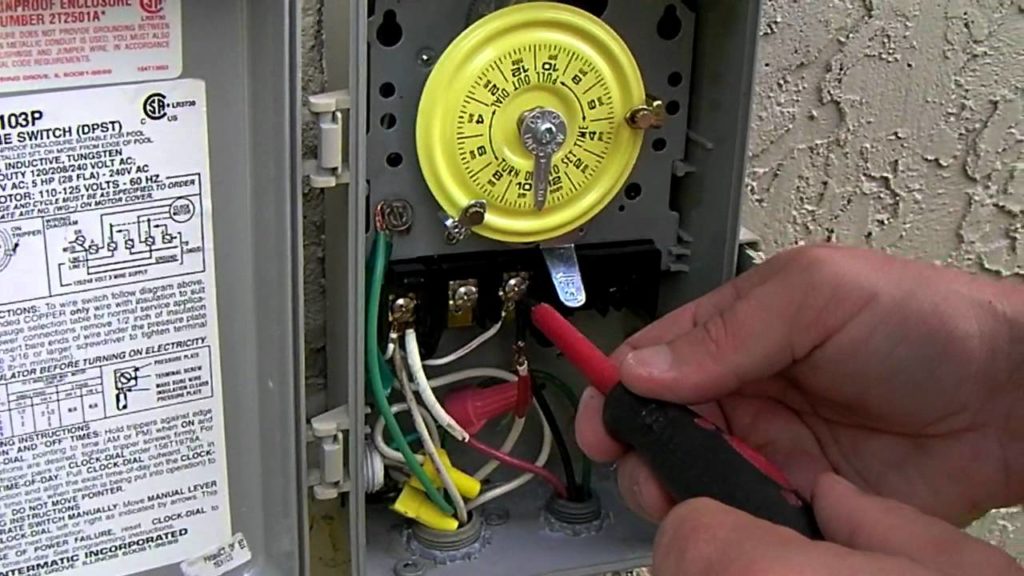
A pool heater is a major convenience, but forget to turn it on and it doesn’t really do you all that much good.
Chances are, you may find yourself in a situation where the pool is far too cold to swim in. Cold enough that it’ll take a few hours before it’s swimmable.
But what if you could avoid that situation altogether? And all by using one simple device?
An automatic timer.
With an automatic timer, you can set your pool heat pump to automatically power on at a specific temperature threshold or time-based schedule. So that way you never have to worry about waking up to chilly waters again.
Some pool heat pumps can heat and cool your pool
While most people purchase pool heaters for the purpose of heating their pools, it’s important to know that some pool heat pumps include an extra utility that’s quite useful.
The ability to cool your water.
So essentially, you get two different machines in one. But you may be wondering when you’d ever need to cool your pool.
Consider the time when a heat wave comes into town, causing your pool to become a hot tub in just a matter of days. At times like this, the ability to cool down your water is indispensable, and it’s not a task you can accomplish any other type of pool heater.
They’re DIY repair and maintenance friendly
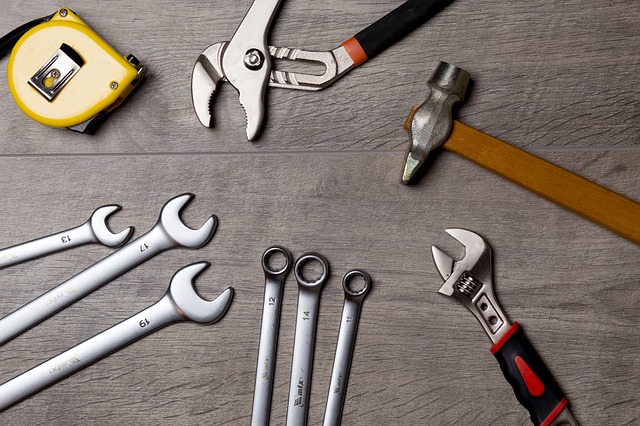
Tired of paying too much for repair jobs? Rather do the work yourself? Good. With a pool heat pump, you can.
With professional support from a pool heating specialist, most pool heat pump repair jobs are pretty do-it-yourself friendly. So if you’re handy with a screwdriver, you can save yourself time and money. All you need is the part and the guidance of a pool heater tech and you’re good to go.
And since most pool heater parts can be ordered by brand, regular maintenance is a breeze compared to other pool heaters.
[Learn about the importance of pool heat pump maintenance here]
Pool heat pumps are environmentally friendly
When it comes to speed, gas pool heaters are the fastest. There’s no doubt about that. But there’s a dark side to gas pool heaters, and that’s all of the C02 emissions they produce from burning gas.
On top of being bad for the environment, C02 emissions aren’t good for humans either.
Pool heat pumps on the other hand cut harmful emissions out of the equation entirely. Since they source their heat from the natural warmth in the atmosphere, there are no harmful gases produced. And that’s because pool heat pumps work by amplifying the natural heat they collect with their fans.
Replacement pool heat pump parts are easy to find
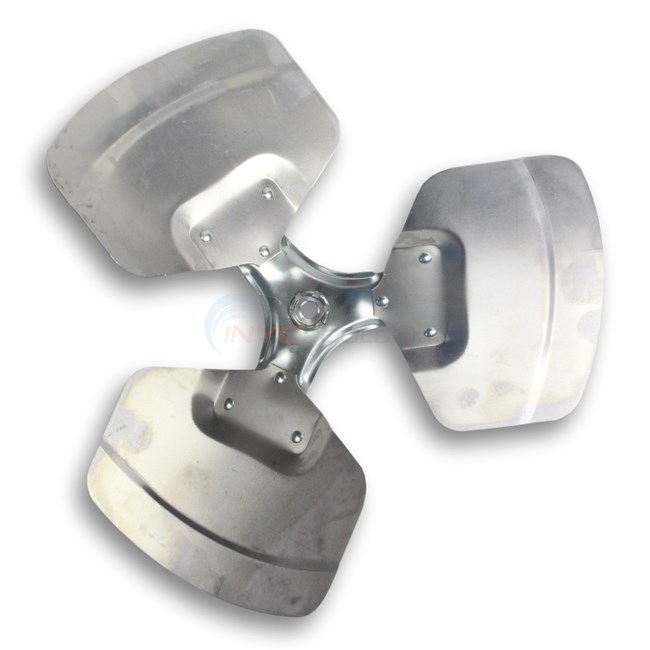
We mentioned DIY repairs earlier, but we didn’t mention anything about getting the parts.
For some pool heaters, it can be difficult or even impossible to find the parts you need. Which usually leads to you being sold into a brand new pool heater from a less than honest salesman.
But with pool heat pumps, nearly every part you could ever need can be found. And even if you can’t find the pool heat pump part you need, a pool heating specialist can help you find a suitable replacement.
Once you have the part, it’s just a matter of performing the replacement. And that’s when a DIY pool heat pump repair service is a great option.
At the end of the day, you save money and extend the life of your pool heater even longer. Win-win.
Closing thoughts
If you read through every point in this post, then you now have 9 new pool heat pump facts you can impress your friends with next time they’re considering a pool heater. And if you were already an informed pool heat pump owner before reading this, kudos to you for making the effort to expand on your knowledge.
At this point, no matter where you stand, it should be easy to see why pool heat pumps are such a great pool heating option. They’re easy to maintain, affordable to run, and will last as long as you let them.
If you enjoyed this post, you might also like:
